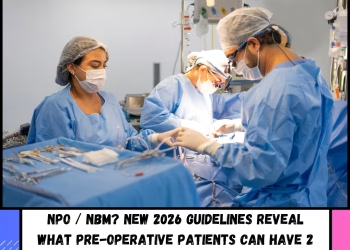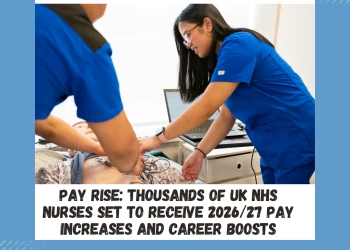Fellow Nurses Africa | Lagos, Nigeria | 11 November, 2025

A growing number of foreign-trained nurses are learning that their health records can determine whether they ever get to work in the United States. What many applicants don’t realize is that under U.S. immigration law, certain health conditions can make someone “inadmissible” meaning, even a job offer or passed NCLEX might not be enough to secure a visa.
The rule applies most strongly to immigrant visa applicants, such as nurses applying through the EB-3 “Schedule A” category, a fast-track option reserved for healthcare professionals.
Before any immigrant visa is issued, every applicant must pass a medical examination conducted by a U.S. approved panel physician in their home country.
The purpose? To screen for specific diseases, vaccination gaps, and health conditions that could pose a public health risk or long-term burden on the American healthcare system.
The Health Conditions That Could Lead to Denial
According to the U.S. Centers for Disease Control and Prevention (CDC) and U.S. Department of State, visa applicants may be denied if they have:
-
A communicable disease of public health significance (such as active tuberculosis).
-
Incomplete vaccination records for required immunizations.
-
A physical or mental disorder associated with behavior that could pose a threat to themselves or others.
-
A history of drug abuse or addiction.
In such cases, the applicant is deemed inadmissible and a waiver or medical clearance may be required before reapplying.
However, common chronic conditions like hypertension, diabetes, asthma, or peptic ulcer disease typically do not disqualify an applicant, unless they cause severe functional limitations or dependence on long-term public support.
What Nurses Should Do Before Applying
For nurses dreaming of a U.S. career, preparation is everything. Here’s how to avoid unexpected visa delays or denials linked to health history:
-
Get a Full Medical Check Before Your Visa Exam – Identify and treat any latent infections early, especially tuberculosis.
-
Gather Vaccination Proof – Bring records for hepatitis B, MMR, varicella, influenza, and other vaccines.
-
Be Honest and Consistent – Never conceal medical history; discrepancies can lead to bans or denials.
-
Manage Chronic Conditions Well – Demonstrating stability and self-management helps ease concerns about being a “public charge.”
-
Consult a Legal Expert – If you’ve ever been treated for a mental health condition or substance use, seek legal guidance before your visa interview.
With the right preparation, it doesn’t have to. The medical exam isn’t designed to punish applicants, but to protect public health and ensure that new arrivals are fit for the demands of professional life.
For nurses, that means being transparent, medically ready, and paperwork-prepared. In a competitive migration process, those who plan ahead stand the best chance of stepping into their American nursing dream, stethoscope in hand, visa in pocket.










